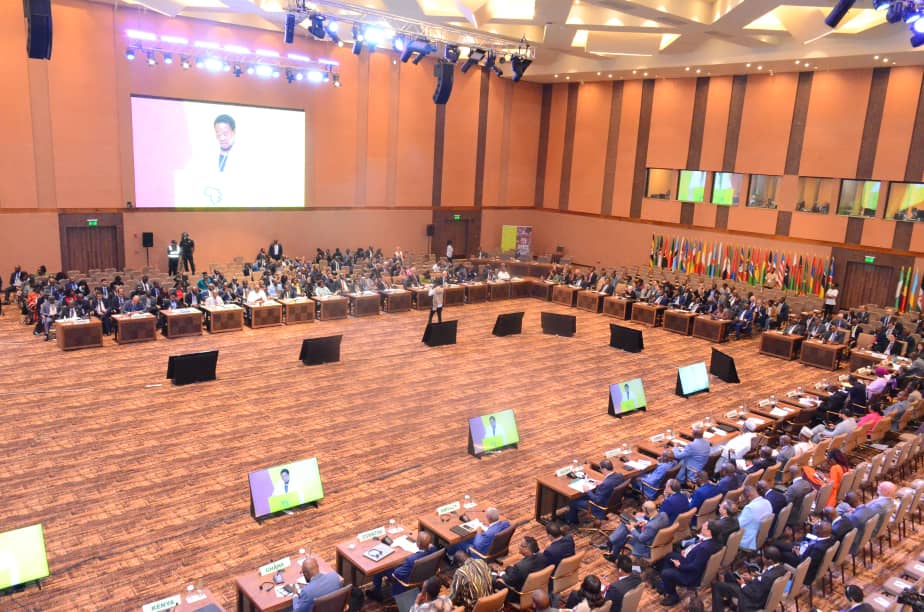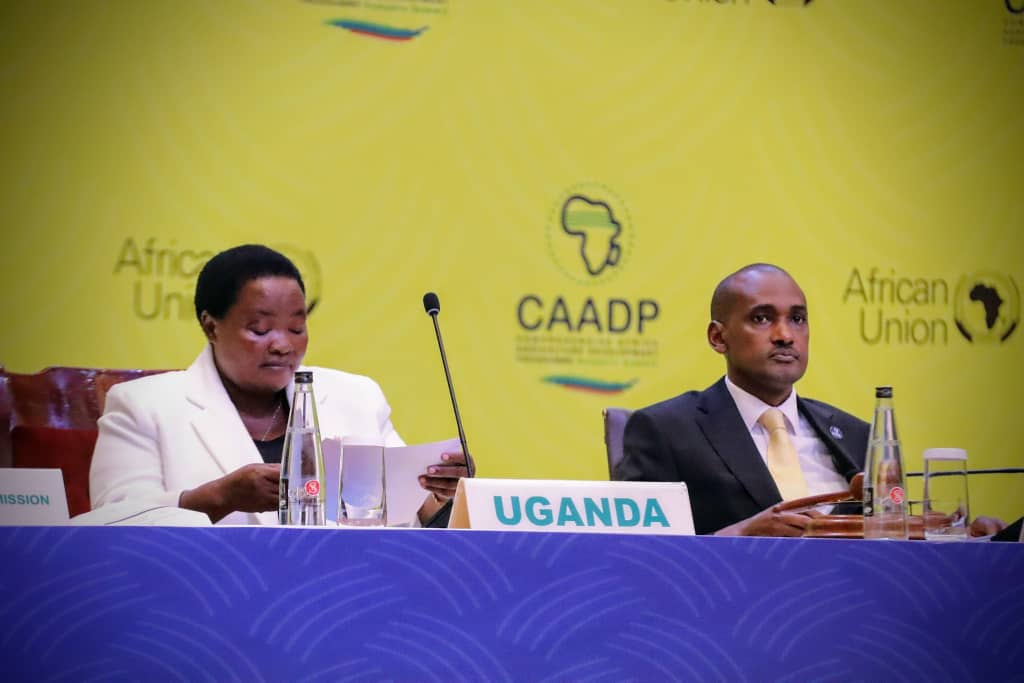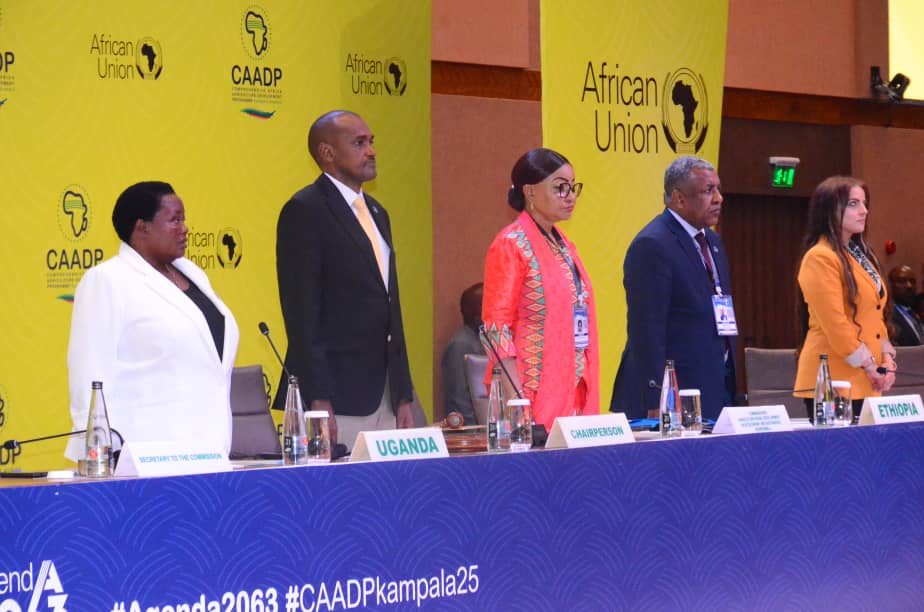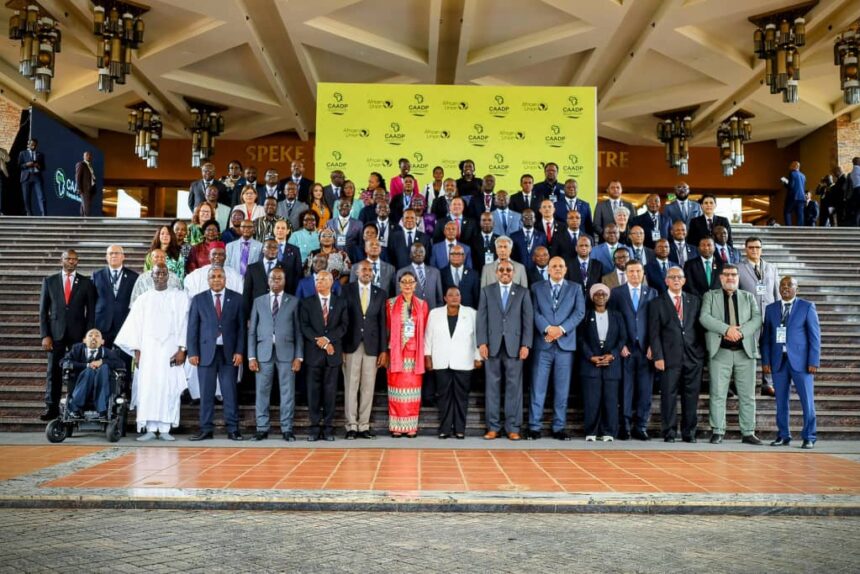The African Union Assembly of Heads of State and Government is hosting a historic summit in Kampala, Uganda, from January 9th to 11th, 2025.
This high-level gathering focuses on the post-Malabo Comprehensive Africa Agriculture Development Programme (CAADP) agenda, a cornerstone of the continent’s efforts to achieve sustainable agricultural transformation. At the heart of the summit is the consideration and endorsement of the draft Ten-Year CAADP Strategy and Action Plan (2026-2035) and the draft Kampala Declaration on Advancing Africa’s Inclusive Agrifood Systems Transformation for Sustainable Economic Growth and Shared Prosperity.

Since its inception in 2003, CAADP has been instrumental in driving Africa’s agricultural transformation, aiming to bolster food security and nutrition, reduce rural poverty, create employment opportunities, and contribute to economic development while safeguarding the environment. The program emphasizes achieving a 6% annual growth rate in the agricultural sector and calls on African Union member states to allocate at least 10% of their national budgets to agriculture. These commitments underline the urgency and importance of the discussions taking place in Kampala this week.

Key Objectives and Agenda of the Summit
The primary goal of the summit is to provide a roadmap for the next decade of agricultural growth and transformation on the continent. Delegates are expected to deliberate on and endorse the Kampala CAADP Declaration, which will outline Africa’s agrifood systems transformation vision for the 2026-2035 period. Additionally, the summit will finalize the Ten-Year CAADP Strategy and Action Plan, designed to operationalize the vision and provide actionable steps to achieve measurable progress.
Uganda’s Minister of Agriculture and summit chairperson, Frank Tumwebaze, highlighted the significance of the ongoing sessions involving ministers of agriculture and foreign affairs. These preliminary discussions, taking place on January 9th and 10th, will culminate in the Heads of State summit scheduled for January 11th. The adoption of the CAADP Kampala25 Declaration by the Heads of State will mark a critical milestone in defining Africa’s agricultural future.
A Diverse and Inclusive Gathering
The summit has attracted a diverse group of participants, including Heads of State and Government from African Union member states, ministers of agriculture and foreign affairs, experts in rural development, forestry, fisheries, and environmental management, as well as representatives from regional economic communities (RECs). Non-state actors, youth and women’s organizations, academia, media, and development partners are also present, emphasizing the inclusive approach to addressing Africa’s agricultural challenges.
This wide array of stakeholders reflects the multifaceted nature of agriculture in Africa and its central role in driving the continent’s development. The inclusion of youth and women, in particular, highlights the importance of tapping into Africa’s demographic dividend and empowering traditionally underrepresented groups in the agricultural sector.
The Legacy of CAADP and the Path Forward
The Comprehensive Africa Agriculture Development Programme has been a beacon of hope and progress for African agriculture. It has provided a framework for countries to align their agricultural policies and investments with continental priorities, resulting in notable achievements. However, challenges such as climate change, population growth, and global economic pressures necessitate a renewed strategy to sustain and expand these gains.

The draft Ten-Year CAADP Strategy and Action Plan (2026-2035) seeks to address these challenges by focusing on inclusive agrifood systems transformation. This approach integrates innovative solutions such as digital technologies, climate-smart agriculture, and sustainable water management practices. Additionally, it emphasizes the need to strengthen regional trade and value chains, enabling African farmers to access broader markets and achieve higher returns.
The Kampala Declaration, once adopted, will serve as a guiding document, aligning member states toward common goals and fostering collaboration at regional and continental levels. It will also provide a mechanism for tracking progress, ensuring accountability, and driving results-oriented actions.

A Critical Moment for Africa’s Agricultural Future
The Kampala summit comes at a time when Africa faces both significant challenges and tremendous opportunities in its agricultural sector. As the continent grapples with climate change, food insecurity, and rapid population growth, it also stands on the cusp of an agricultural revolution driven by technological innovation, youth engagement, and regional integration.

The outcomes of the Kampala summit will shape the next decade of Africa’s agricultural development, influencing policies, investments, and partnerships. As ministers, experts, and Heads of State deliberate on the draft CAADP Strategy and Kampala Declaration, the hopes of millions of farmers, entrepreneurs, and citizens rest on their commitment to creating a more inclusive, resilient, and prosperous agricultural sector.
The African Union’s vision of transforming agrifood systems is not just about agriculture—it is about building a sustainable future where every African can thrive. The decisions made in Kampala will be pivotal in making this vision a reality.








